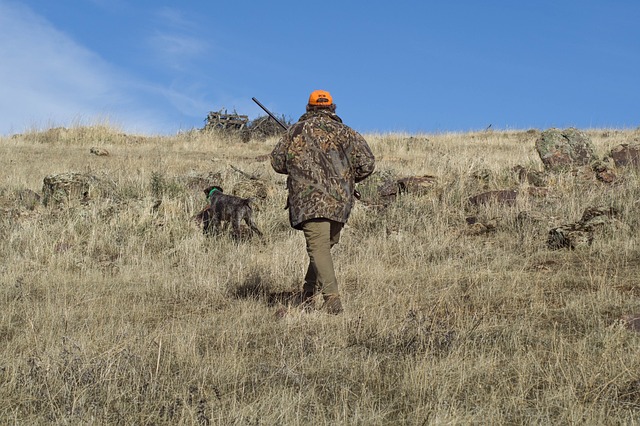The labyrinth of hunting governance can seem intricate and entangled to the uninitiated, particularly when it comes to licenses for those from beyond state borders. Every U.S. state has its unique compilation of guidelines and procedures related to hunting – a kaleidoscope of rules that often pivot on whether the hunter is a resident or an outsider. The Buckeye State, Ohio as affectionately christened, doesn’t deviate from this standard.
Therefore, for non-local hunters, gaining a robust understanding of the legal framework enveloping the Ohio non-resident hunting license turns crucial in order to ascertain lawful adherence and seamless hunting pursuits.
In Ohio, where grandeur meets grit amidst nature’s bounty, it’s the Ohio Department of Wildlife that primarily steers the helm of hunting regulations. They offer an array of permissions contingent on both- what game one aims at capturing and their domicile status. For those who don’t call Ohio home – be they residents elsewhere or recent movers – securing an Ohio non-resident hunting license becomes mandatory before embarking on their expedition.
These licenses are tailor-made for individuals not residing within the geographical confines of Ohio—signifying clear intent towards conservation commitment and sustainable hunting practices by enabling regulated control over hunts so as not to tip ecological balance via excessive extraction.
Eligibility Criteria for Non-Local Hunters in the Buckeye State
The labyrinthine codes and edicts governing the acquisition of a non-residential hunting license in Ohio, known as the Buckeye State, are meticulously designed with an aim to uphold safety, fairness and preservation of environment. A query that frequently emerges is: “What’s the price tag for a non-resident hunting license in Ohio?” The precise cost can swing depending on numerous factors such as type of game targeted or duration of license validity. However, all would-be hunters irrespective of their residence must satisfy certain eligibility benchmarks.
Every non-resident harboring aspirations to hunt within Ohio’s borders is compelled to secure a legitimate hunting permit, potentially supplemented by other permits or stamps dictated by their choice of game. An essential prerequisite necessitates successful completion of a hunter education program if one’s birth date falls on or post January 1st ,1938. Usually individuals can present proof from their home state showing completion of this mandated educational requirement for hunters; nonetheless it’s obligatory during the application stages. Adherence to these stipulated eligibility conditions paves way for smoother processing and heightens chances at securing an elusive Ohio non-residential hunting license.
How to Apply for a Permit to Hunt as a Non-Resident

To navigate the labyrinth of securing a permit, which empowers non-residents to hunt deer in Ohio’s verdant landscapes, a sequence of actions must be skilfully manoeuvred. The Division of Wildlife orchestrates this dance; they are puppeteers controlling strings attached to the Ohio Department of Natural Resources’ hunting regulations. As gatekeepers, they offer an online portal for brave applicants – the Wild Ohio Customer Center.
Herein lies your first task – crafting a profile from threads of personal history like name, birthdate and that all-important Social Security number.
With completion comes reward – or rather more challenges buried within layers of digital dialogue boxes beckoning you towards purchasing your desired license. “What tools do I need in my arsenal to hunt deer as a non-resident amidst Ohio’s wilderness?” rings out repeatedly across forums and message boards. To answer this call swiftly: two items are required on your checklist – The Non-Resident Ohio Hunting License and its companion piece, the Non-Resident Deer Permit.
However tread lightly upon this path and keep one eye trained on both state and local ordinances before embarking on your journey into wild game territory. For these rules shift like sand underfoot – changing with population control needs sweeping through herd numbers or other environmental factors whispering changes into policy-makers’ ears.
Essential Documentation for Non-Resident Hunting Applications
The task of securing a non-residential hunting permit in the Buckeye State is shrouded in an intricate web of bureaucratic red tape, necessitating a whole array of documentations. The hopeful applicants, irrespective of their nationality or citizenship status, are required to produce an unexpired form of identification that carries weight – be it a passport or any other government sanctioned photo ID. It’s crucial to underline the word “unexpired” here as any attempts with outdated IDs will inevitably hit a brick wall.
Invariably, the question that surfaces and swirls around often is: “Is it possible for someone hailing from outside U.S borders to obtain this elusive hunting license?” In the case of our Buckeye State, there seems to be light at end of tunnel. The answer stands tall and positive; yes they can! This is on condition though that all other benchmarks set for eligibility have been met without fail and importantly they own up-to-date identification proof. A note worth mentioning here is that these rules may not hold true universally across different states within US geography. Non-US citizens might encounter unique regulations elsewhere which warrants diligent research before submitting applications. For most foreign applicants however, it’s typically their valid passports doing rounds as acceptable identity proofs during application proceedings.
Armed with this knowledge about requirements clear as crystal waters flowing through Appalachian foothills, hunters both local and distant can prepare themselves for an exciting adventure filled with legality and joyous hunt.
Costs and Fees Associated with Non-Domicile Hunting Licenses
Grasping the monetary obligations tied to non-domicile hunting permissions forms a pivotal fragment in charting any interstate hunting escapade. The sweeping axiom spanning across all U.S. States, Ohio included, posits that pursuing game devoid of an official permit is deemed illicit. Significantly, this rule holds water whether one claims residency or stands as an outsider.
The incumbent dues linked with a non-resident hunting license can seem mildly daunting, chiefly for greenhorn hunters. Trapping a whitetail buck amidst Ohio’s verdant timberlands could translate into a steep venture for those not calling it home. This cost component escalates in importance particularly since the query – “Is unlicensed hunting permissible in Ohio?” – can be categorically addressed with an emphatic “No.” As such, hunters ought to contemplate not only the exhilaration of the hunt but also its consequential dent on their finances.
Types of Non-Local Hunting Licenses and Their Differences
In the sphere of interstate hunting, one must grasp that all licenses aren’t uniformly fashioned. This rings particularly true within the borders of the Buckeye State, where a multitude of wildlife and vast hunting terrains lure enthusiasts from every corner of our nation. In Ohio, an array of unique non-resident hunting licenses are on offer, each tailored to cater to distinct hunting formats and species.
Most prevalent among these is the Non-residential Annual Hunting License – a passport granting full-year privileges for an assortment of game species. For those whose sights are set solely on deer, there’s the specialized Non-residential Deer Hunting Permit at their disposal. Of significant note is also the Non-residential Wild Turkey Hunting Permit; custom-made for hunters engaging in Ohio’s celebrated turkey seasons. These licenses exhibit variations not only in terms of permitted game species but also with regards to associated costs, submission prerequisites and even encapsulating different hunting seasons. Acquainting oneself with these disparities proves vital for out-of-state hunters eager to partake in Ohio’s plentiful bounty provided by its rich hunting prospects.
Non-Resident Youth Hunting Opportunities in the Buckeye State
In the Buckeye State, otherwise known as Ohio, a rich tapestry of hunting experiences unfolds invitingly before non-residential youth. Not just from various states, but even different countries find themselves lured to Ohio’s diverse species and its legislation that warmly embraces ethical hunting practices. The result? A captivating blend of cultural exchange interwoven with shared fervor for the sport.
A plethora of permit possibilities fling open doors for these non-resident youths to immerse in game hunting. These are not mere hunts; they offer unique educational opportunities out in nature where survival skills mingle with sportsmanship under an overarching sky.
However, there exist legal prerequisites set by none other than the Ohio Department of Natural Resources (DNR) that these young enthusiasts must meet to partake in this adventure. It’s worth noting here that those below fifteen years require an adult – who isn’t participating in the hunt – to accompany them while those aged between 15-17 can venture forth alone if they hold a valid hunting license.
The DNR is steadfastly committed towards instilling safe and ethical hunting practices within these budding hunters; making completion of a hunter education course obligatory prior applying for any permit. This approach underscores their firm resolve towards molding responsible young hunters who respect nature – individuals who will evolve into cautious caretakers of our precious natural resources.
FAQ
The purpose of said legislation governing out-of-state hunting in the Buckeye State is chiefly to ensure that non-resident hunters comply with local laws and regulations when participating in hunting activities. Additionally, it aims at promoting wildlife conservation within the state.
Non-residents who wish to hunt within confines of Ohio, fondly known as ‘the Buckeye State,’ must meet certain criteria which may depend on factors such as age, residency status and past experience with hunting. It is imperative to consult resources like Department of Natural Resources or equivalent authority for detailed requirements.
Out-of-towners interested in acquiring a license permitting them to partake in regulated hunts can do so by navigating through Ohio’s official wildlife agency website where they will find necessary application forms and instructions about fees payment.
When applying from afar, hunters typically need such documents as proof of identity along with evidence affirming their residential status outside Ohio, not forgetting certificates pertaining to any completed hunter education courses whenever applicable. Importantly though, these guidelines may undergo changes so checking regularly would be wise.
Costs associated obtaining your ticket into non-local game-hunting adventures vary greatly based upon factors including but not limited to what type of creature you aim at bagging down and how long you’ll spend chasing after them during designated seasons. For specifics regarding these financial details head over official channels related wildlife management agency.
In Ohio, non-residents have several types of hunting permits to choose from. This includes seasonal licenses, big game licenses and smaller game variants too. Each comes with its own regulations, designated time frames for hunting as well as costs associated.
Younger hunters hailing from outside Ohio are presented with ample opportunities designed specifically for their age group. These include but are not limited to special youth seasons dedicated solely towards them along with educational programs aimed at nurturing their skills while ensuring they comply fully under specific rules and regulations.


